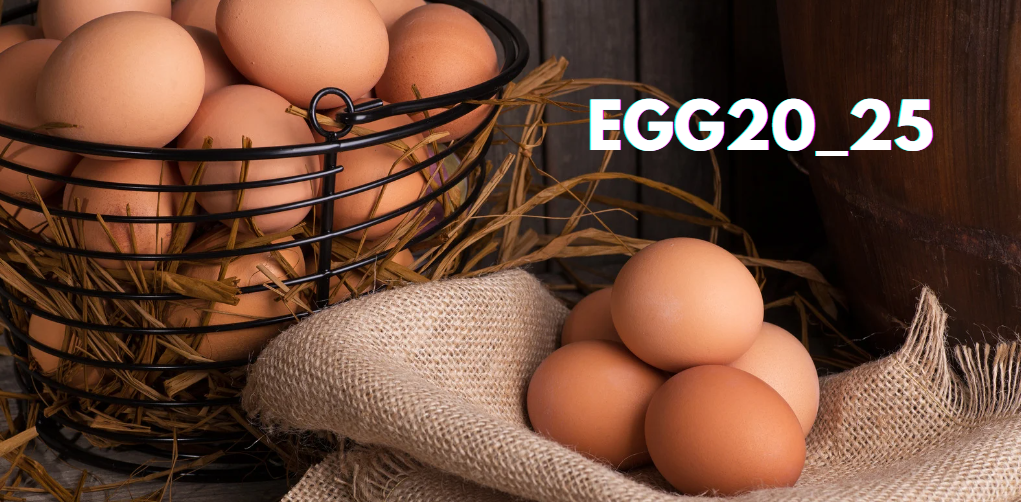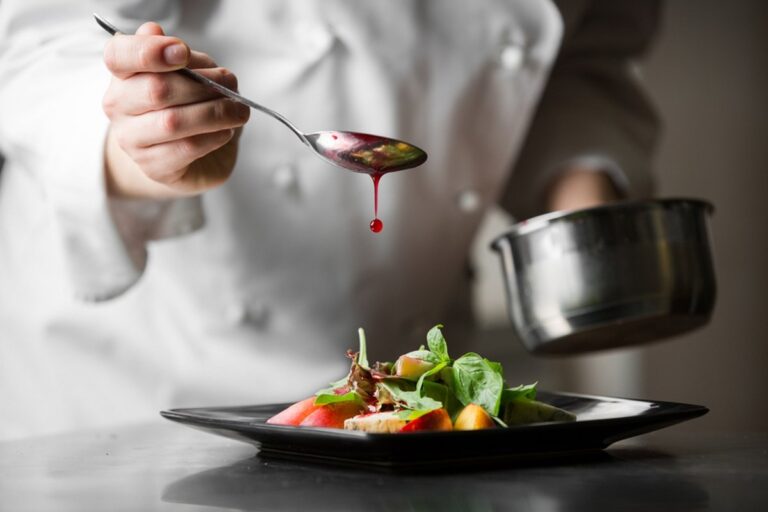
Introduction to Egg20_25
Eggs are more than just a breakfast staple; they’re the culinary chameleons of the kitchen. Whether you crave a sunny-side-up masterpiece or a fluffy omelet, mastering egg-cooking techniques can elevate your meals to new heights.
Welcome to Egg20_25, your ultimate guide to cooking eggs like a pro! Here, we explore everything from common mistakes that could ruin your dish to advanced techniques that will impress even the pickiest eaters.
Get ready to crack open some culinary secrets and discover how versatile and delicious eggs can be in every meal. Let’s dive into the world of eggs together!
Common Mistakes When Cooking Eggs and How to Avoid Them
Cooking Egg20_25 can seem simple, yet many people make common mistakes that can ruin the dish. One frequent error is not using fresh eggs.
Freshness affects flavor and texture significantly.
Another pitfall is cooking at high heat. Eggs cook best over medium to low temperatures.
This helps prevent rubbery textures and ensures even cooking throughout.
Many also overlook seasoning until the end.
Adding salt too early draws moisture out of the egg, resulting in a watery mess. Instead, season just before serving for optimal taste.
Overcrowding your pan leads to uneven cooking. Give each egg enough space to breathe for perfect results every time.
By avoiding these traps, you’ll elevate your egg-cooking skills dramatically!
The Right Tools for Egg-Cooking
To master the art of Egg20_25 cooking, having the right tools is essential.
A non-stick skillet should be your go-to for frying and scrambling eggs.
This will ensure they slide out easily without sticking.
For boiling eggs, an egg timer can make all the difference.
It takes away the guesswork and helps you achieve that perfect soft or hard yolk every time.
A slotted spoon is ideal for poaching eggs.
Egg20_25 allows you to gently lift them from simmering water without breaking their delicate structure.
Don’t forget a good whisk! Whether you’re beating eggs for an omelet or mixing ingredients for a frittata, a sturdy whisk makes the process smoother and quicker.
Invest in quality storage containers if you like meal prepping with boiled or scrambled eggs.
Keeping them fresh will enhance your cooking experience.
Basic Egg-Cooking Techniques (boiling, frying, scrambling)
Boiling eggs is a fundamental technique that yields versatile results. For hard-boiled eggs, simmer them for about 9 to 12 minutes.
If you prefer soft-boiled, aim for around 6 to 8 minutes. The key lies in the timing.
Frying is where creativity shines. You can achieve sunny-side up or over-easy with just a little oil and careful attention.
Heat your pan well, crack your egg gently, and allow it to cook until the whites are set but yolks remain runny or firm based on preference.
Scrambling offers another layer of simplicity and flavor.
Whisk together eggs with a splash of milk or cream for extra richness before pouring into a hot skillet.
Stir gently while cooking to create fluffy curds that melt in your mouth.
These basic techniques lay the groundwork for mastering egg dishes you’ll love making time after time.
Advanced Egg-Cooking Techniques (poaching, baking, omelets)
Poaching Egg20_25 can seem intimidating, but it’s easier than you think. Start with fresh eggs for the best results.
Heat water to just below boiling, add a splash of vinegar, and gently slide in the egg.
The trick is not to stir too vigorously; let it cook undisturbed for about three minutes.
Baking Egg20_25 opens up a world of delicious options.
Consider frittatas or shakshuka. Simply whisk your eggs with spices and veggies, pour into an oven-safe dish, and bake until set.
It’s perfect for meal prep or feeding a crowd.
Omelets are versatile canvases waiting for your favorite ingredients. Whisk your eggs until fluffy, then pour them into a hot skillet.
Once they begin to set, fold in cheese, herbs, or leftover meats for added flavor. Cook until golden brown on the outside yet soft on the inside—it’s all about timing!
Creative Ways to Use Eggs in Recipes
Egg20_25 are incredibly versatile and can elevate various dishes.
Consider incorporating them into a classic carbonara, using the yolks to create a luscious sauce that clings to pasta.
For breakfast lovers, try making an egg-based frittata packed with your favorite vegetables and cheeses. It’s perfect for meal prep and serves beautifully at brunch.
Experiment with eggs in baking too! They add moisture and structure to cakes, muffins, or even pancakes.
A simple recipe like lemon meringue pie showcases their ability to shine in desserts.
Don’t forget about eggs in salads! Hard-boiled eggs can bring creaminess when mixed into potato salad or atop leafy greens for added protein.
Explore global flavors by preparing shakshuka—a delightful dish of poached Egg20_25 simmered in spiced tomato sauce. Each bite delivers warmth and comfort.
Tips for Perfectly Cooked Eggs Every Time
Achieving perfectly cooked eggs requires a few simple techniques. Start with fresh eggs; freshness enhances texture and taste.
Temperature is key. For scrambled eggs, whisk them thoroughly and let them come to room temperature before cooking. This helps achieve a fluffier result.
When boiling, add salt to your water for easier peeling later on. A gentle simmer works wonders, especially for soft-boiled eggs.
For frying, use medium heat and allow the pan to preheat properly. A non-stick skillet can make all the difference in avoiding sticking issues.
Don’t forget seasoning! Add salt or pepper towards the end of cooking for maximum flavor without drawing out moisture too early.
Practice timing based on your preferences—experimenting will help you find that perfect balance between runny yolks and firm whites tailored to your liking.
Conclusion
Egg20_25 are incredibly versatile and can elevate any dish when cooked properly. Mastering various techniques opens up a world of culinary possibilities.
Experimentation is key. Don’t hesitate to try new methods or tweak traditional recipes. You might discover your next favorite dish along the way.
Remember, practice makes perfect. Each attempt brings you closer to egg-cooking mastery. With time, you’ll learn how to achieve that ideal texture and flavor every single time.
Embrace the process and enjoy it! Cooking should be fun, not stressful. Let your creativity shine through as you whip up delightful meals with eggs at their core.
With these skills under your belt, there’s no limit to what you can create in the kitchen using Egg20_25 techniques!
FAQS
What is Egg20_25?
Egg20_25 refers to a comprehensive guide that encompasses various egg-cooking techniques, from basic methods like boiling and frying to advanced skills such as poaching and baking. This guide aims to elevate your cooking game by providing practical tips for mastering the art of cooking eggs.
How can I prevent eggs from sticking when frying?
To prevent sticking, ensure your pan is preheated before adding oil or butter. Use enough fat to coat the surface evenly. Non-stick pans work wonders too, making it easier to achieve perfectly cooked fried eggs without them clinging stubbornly.
Are there any health benefits associated with eating eggs?
Yes! Eggs are packed with protein, essential vitamins, and minerals. They contain nutrients like choline which supports brain function and selenium for antioxidant properties. Including eggs in your diet offers numerous health advantages.
Can I use older eggs for certain recipes?
Older eggs are actually better for hard boiling because they peel more easily than fresh ones. However, make sure they haven’t gone bad by checking their smell or conducting a float test in water—fresh ones sink while spoiled ones float.
What’s the best way to store leftover scrambled eggs?
Store leftovers in an airtight container in the refrigerator for up to three days. When reheating, do so gently on low heat using a microwave or skillet, stirring occasionally until warmed through.
How can I tell if my boiled egg is done?
The timing depends on how you want your yolk! For soft-boiled perfection (about 6 minutes), aim for a slightly runny center while hard-boiled takes around 10-12 minutes depending on size—just be sure not to overcook!
Now you’re ready to explore delicious possibilities with Egg20_25 at your fingertips! Happy cooking!




